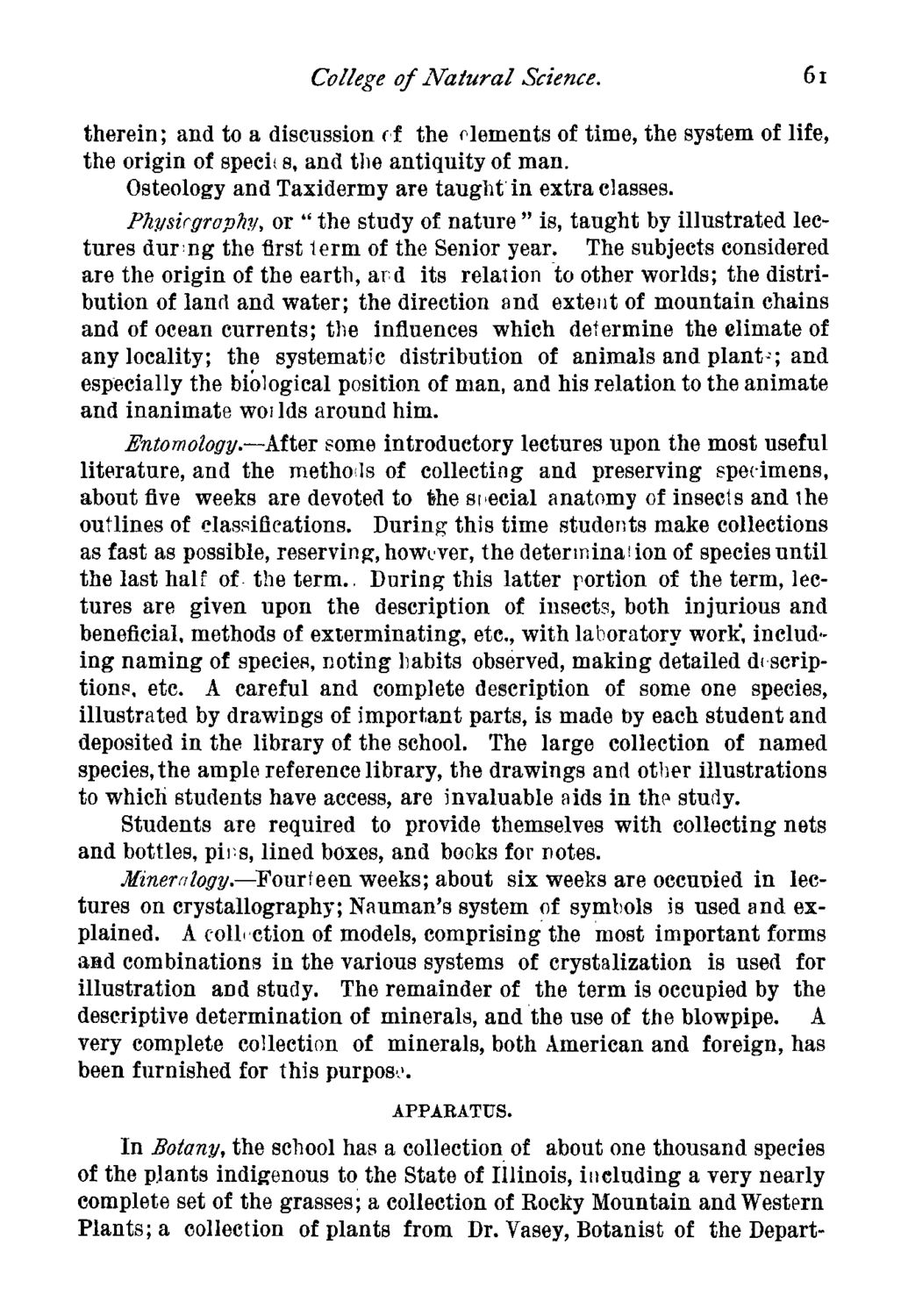| |
| |
Caption: Course Catalog - 1883-1884
This is a reduced-resolution page image for fast online browsing.

EXTRACTED TEXT FROM PAGE:
College of Natural Science. 61 therein; and to a discussion f f the elements of time, the system of life, the origin of specis a, and the antiquity of man. Osteology and Taxidermy are taught in extra classes. Physirgraphy, or " the study of nature " is, taught by illustrated lectures dur ng the first term of the Senior year. The subjects considered are the origin of the earth, ard its relation to other worlds; the distribution of lanrl and water; the direction and extent of mountain chains and of ocean currents; the influences which determine the elimate of any locality; the systematic distribution of animals and plant-; and especially the biological position of man, and his relation to the animate and inanimate woi Ids around him. Entomology.—After some introductory lectures upon the most useful literature, and the methols of collecting and preserving specimens, about five weeks are devoted to toe special anatomy of insects and ihe outlines of classifications. During this time students make collections as fast as possible, reserving, however, the deterinina! ion of species until the last half of the term.. Daring this latter rortion of the term, lectures are given upon the description of insects, both injurious and beneficial, methods of exterminating, etc., with laboratory work", including naming of species, noting habits observed, making detailed di scriptions, etc. A careful and complete description of some one species, illustrated by drawings of important parts, is made by each student and deposited in the library of the school. The large collection of named species, the ample reference library, the drawings and other illustrations to which students have access, are invaluable aids in thp study. Students are required to provide themselves with collecting nets and bottles, pins, lined boxes, and books for rotes. Mineralogy.—Fourteen weeks; about six weeks are occupied in lectures on crystallography; Nauman's system of symbols is used and explained. A collection of models, comprising the most important forms and combinations in the various systems of crystalization is used for illustration and study. The remainder of the term is occupied by the descriptive determination of minerals, and the use of the blowpipe. A very complete collection of minerals, both American and foreign, has been furnished for this purpose. APPAEATUS. In Botany, the school has a collection of about one thousand species of the plants indigenous to the State of Illinois, including a very nearly complete set of the grasses; a collection of Rocky Mountain and Western Plants; a collection of plants from Dr. Vasey, Botanist of the Depart-
| |